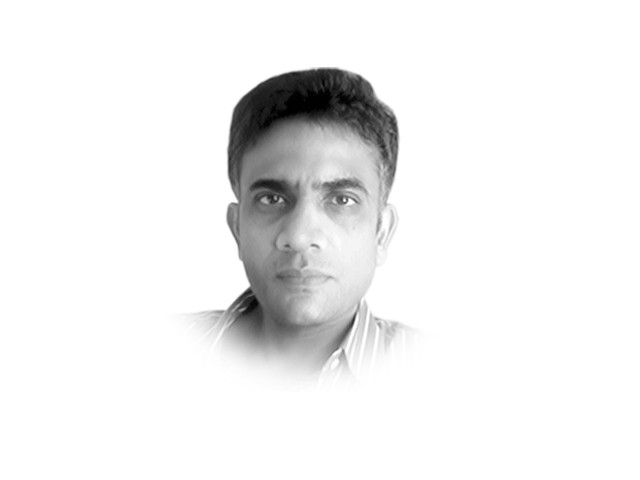Pakistan’s sad record
The tradition of democratically elected leaders being ejected through undemocratic methods seems set to continue.

Yousaf Raza Gilani was the 23rd consecutive Pakistani leader to be ejected before his time. This is a remarkable tribute to both Pakistan's desire to be a democracy and its incompetence at managing it.
If Chief Justice Iftikhar Chaudhry continues to insist that the government send the Swiss letter and if the PPP insists it will not "prosecute the grave of Benazir Bhutto", Pakistan might lose its best chance to have an elected national assembly finish its full term.
Along with Nepal, which has been a republic for just four years, Pakistan is the only state in South Asia to never have a prime minister finish his term.
The man who served longest was Liaquat Ali Khan, Pakistan's first prime minister, who was killed in 1951. This brought a chain of unelected leaders who fought among themselves while failing to produce a constitution.
Malik Ghulam Muhammad is mentioned in the records of Mahindra & Mahindra, where he was a partner, with great reverence, but Ayub Khan describes him in his autobiography as a wicked old man who cackled incomprehensibly (I was taken aback to learn that Ghulam Muhammad was only 61 when he died). He booted out Pakistan's first Bengali prime minister, Khawaja Nazimuddin. Iskandar Mirza got rid of the second and third Bengali prime ministers, Mohammad Ali Bogra (who might have kept Pakistan united) and HS Suhrawardy, who was disliked in India because of the carnage in Calcutta on Direct Action Day, but was probably a better leader than Liaquat.
The first Punjabi prime minister, Chaudhry Muhammad Ali lasted only a year and Pakistan's first and only Gujarati prime minister, II Chundrigar, lasted two months. Feroz Khan Noon was the last prime minister before the long intervention of Ayub Khan. Samuel Huntington was infamous for his clash of civilisations theory, but he was also an early enthusiast of Pakistani strongmen. He compared Ayub to the Athenian lawgiver Solon, because of his constitution, Pakistan's second, which brought "grassroots democracy", a claim that Musharraf would repeat.
Under General Yahya Khan, Pakistan's fourth and last Bengali prime minister Nurul Amin came and went as the country was partitioned in 1971.
The Baloch Bhutto was a very charismatic man and, therefore, loved or hated. He led the best cabinet in Pakistan's history. Even today, 40 years later, the best books about the working of Pakistan's politics are those written by Bhutto's men, Rafi Raza, Mubashir Hasan and later Khalid Hasan and Iqbal Akhund. Another very fine book is Sherbaz Mazari's memoir, in which he describes how Khair Buksh Marri, being the bigger wadero, humiliated Bhutto by repeatedly turning his face away from him when offered the job of governor.
History has been unkind to Bhutto even though he was hanged, but he did produce a very good constitution, Pakistan's third, later wrecked by amendments, including the infamous second one against Ahmadis.
The long night under Zia had one prime minister, the Sindhi Junejo. The dawn of Benazir (how young and fresh she looks in her photographs in those early years) was stained very soon. Would Pakistan be different today if she were alive? Saroop Ijaz spoke for many Pakistanis, when he wrote that “we live in the wreckage of her death”.
Nawaz Sharif wrote an embarrassingly fawning tribute to Zia in a book compiled after the general died, and he should be shown his words every so often. He is a difficult man to understand, sometimes pragmatic, other times stubborn. After the Osama incident and the attack on Karachi's naval base, he set about demanding accountability from General Kayani, but soon backed out as he understood the national consensus in favour of the army.
It is thought that Sharif has matured enough to be a good leader if he gets another chance.
In the years when he and Benazir rotated around the prime minister's chair also came the four caretaker prime ministers — Ghulam Mustafa Jatoi, Moeen Qureshi, Malik Meraj Khalid and Balkh Sher Mazari. One of them — I cannot remember which one — had a cabinet of professionals that included men of the stature of Najam Sethi.
Gen Musharraf called himself Chief Executive (he said that one of his lt-generals had suggested the title and he had liked it) to take the edge off his coup. His prime ministers were Zafarullah Jamali, who displayed very little energy, Chaudhry Shujaat as caretaker and then Shaukat Aziz. Someone — I think my friend Khalid Hasan — nicknamed him 'Shortcut'. Both he and Musharraf are gone, never to return despite the promises.
Muhammad Mian Soomro then became caretaker prime minister, by my count Pakistan's seventh, before the PPP took power. Yusuf Raza Gilani almost made it across the line before being tripped up by the Supreme Court and Raja Pervez Ashraf now must wait to see how long he will be in office.
Pakistan's prime ministers have always, and without exception, been removed through external intervention. What used to be a system where power was shared uneasily between army and civil society now has a third force. An energised judiciary is backed by a free media that insists on accountability only from the elected.
Pakistan's tradition of democratically elected leaders being ejected through undemocratic methods seems set to continue.
Published In The Express Tribune, June 24th, 2012.












COMMENTS
Comments are moderated and generally will be posted if they are on-topic and not abusive.
For more information, please see our Comments FAQ